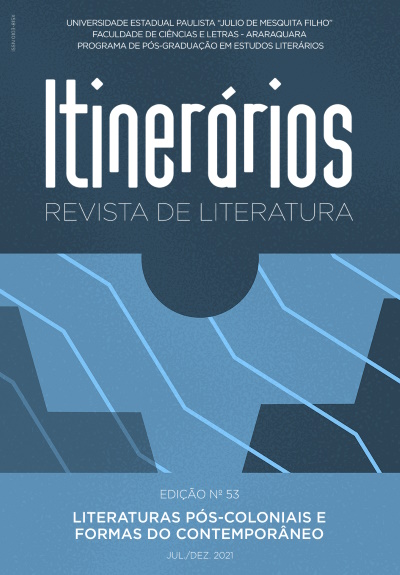The crossed gaze
gender and race in the construction of the otherness of the colonial subject in “The nuisance” by Doris Lessing
DOI:
https://doi.org/10.58943/irl.vi53.14824Keywords:
Colonization, Gender, AlterityAbstract
This study has as its purpose the analysis of the short story “The nuisance”, part of the collection African Stories (2014), written by the Iranian author Doris Lessing. Its goal is to show how colonial subject alterity is constructed through the gaze of the narrator, who occupies the position of the colonizer, seeking to explore how gender acts in the construction of differences between black men and women inside the narrative. In order to achieve the established goals, bibliographic research was conducted, especially sustained by the works of Hooks (2020), Bhabha (1998), and Bahri (2013). In “The nuisance” (2014), the colonial subject is determined from the outside, through the gaze of the colonizing Self, the narrator ascribes to him wild features and describes him most of the time through comparisons with animals. Furthermore, the denial of the rights of name and feelings reinforces, therefore, the process of objectification, which they are subject to during the process of colonization. In addition, it is also possible to observe the valorization of masculinity and thus the legitimation of feminine submission; besides being the victims of racism, black women are also culturally and socially subjugated for their gender.
Downloads
Published
Issue
Section
License
Os manuscritos aceitos e publicados são de propriedade da revista Itinerários. É vedada a submissão integral ou parcial do manuscrito a qualquer outro periódico. A responsabilidade do conteúdo dos artigos é exclusiva dos autores. É vedada a tradução para outro idioma sem a autorização escrita do Editor ouvida a Comissão Editorial.

